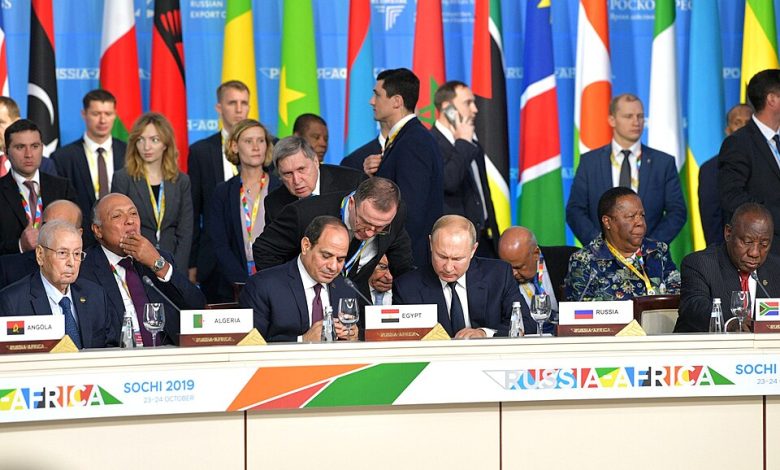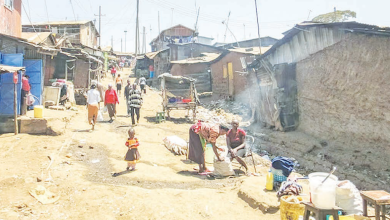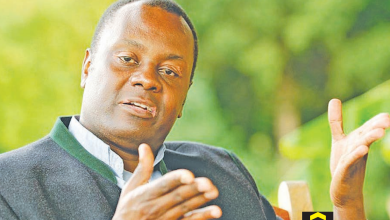Africa Day: Russia pledges support

……………….Russia-Tanzania cultural link grows
DAR ES SALAAM: IN light of commemoration of the Africa Day, Russia has reaffirmed its commitments to more cooperation and development of African countries Tanzania as well.
The commitments are to re-establishing and strengthening diplomatic, cultural and economic ties with African nations, presenting a vision of cooperation based on shared interests and historical solidarity.
The commitment was reiterated by the Russian head of Federal Agency for the Commonwealth of Independent States Compatriots Living Abroad and International Humanitarian Cooperation Yevgeny Primakov Jr through a Zoom meeting over the weekend.
Africa Day is being observed in May 25 of every year and the dialogue involved 150 journalists in about 15 African countries Tanzania as well, highlighted on Russia’s historical and ongoing engagement with the continent reflecting back the Soviet era of anticolonial struggles.
Mr Primakov Jr underscored the importance of moving beyond historical narratives by focusing on current collaborative opportunities. He stressed the need to address shared challenges like food security, infant mortality and technological development through practical cooperation.
He revealed Russia’s strategic approach to rebuilding relationships with African nations after a period of reduced engagement in the 1990s.
“Current initiatives include educational programmes, language courses and technology transfer, with specific mentions of robotics courses in Tanzania and Ethiopia,” said Mr Primakov Jr.
Looking forward, he outlined plans for a significant gathering in Moscow in October this year, aimed at bringing together intellectuals, scientists and thought leaders from Africa, Asia and Latin America to discuss pressing global issues.
Speaking about the contemporary geopolitical challenges, particularly the impact of international sanctions on business relationships he encouraged African nations to pursue independent economic strategies, suggesting increased participation in Russian payment systems and manufacturing chains that would be mutually beneficial.
Underscoring a forwardlooking perspective, the Russian diplomats portrayed their engagement with Africa as a partnership of mutual respect and shared development, moving beyond historical colonial dynamics towards a collaborative future.
ALSO READ: Revised foreign policy signals TZ’s global shift
On his part Head of Russian Scientific and Cultural Centre in Dar es Salaam Alexander Zevinf, expressed the Federation’s readiness to increase the existing ties underscoring the on-going cooperation with Tanzania in education sector as they have already offered 90 scholarship opportunities to Tanzanian student to study in Russia.
“We are trying to increase our relation as you can remember a week ago we organised the intergovernmental conference in St Petersburg, with a large number of Tanzanian delegation in attendance to discuss some mutual interest matters,” said Mr Zevinf.
Russia has been a potential ally to Tanzania from colonial struggle, during independency up to now collaborating in number of areas including trade, science and technology culture among other shared interests.
In 2021, the turnover of trade between Russia and Tanzania amounted to about 200 US million dollars, with the share of exports from Russia estimated at more than 80 per cent.
Russian exports to Tanzania are mostly grain and fertilisers, while Tanzanian exports to Russia consist entirely of agricultural raw materials like unprocessed coffee, tobacco, tea and edible oil.
Tanzania has enjoyed the long friendship with Russia the most significant is in the realm of education. Over many decades, thousands of Tanzanian students have benefited from scholarships and specialised training offered by the Russian government, stretching from Soviet times to today.
Last summer, Russia announced 90 scholarships for Tanzanian students, providing an opportunity to study at some of the nation’s leading universities.
90 students had already travelled to Russia to pursue their studies in the universities of Tula, Tomsk, and St Petersburg, after being admitted for the 2024-2025 academic year. According to Zevinf, the scholarship is fully funded by the Russian government.
Their government pay the tuition fee and the students will have the responsibility to pay for their accommodation.
“This is a fully funded scholarship, covering all tuition costs for the duration of their studies whether three, four, or five years fully paid by the Russian government.” To address the challenge of language for the first timers in Russia the centre has made a lot of strides to teach students the Russian language before they travel to Russia for studies.
Zevinf told RT that recently they have been organising a programme in Dar es Salaam, Tanzania for successful candidates where they undergo an eight-month Russian language course at a cultural centre to prepare them for their studies and facilitate their integration into Russian society.
He explained that the language course offered at the centre enables students to bypass the one-year language programme they would otherwise be required to complete before beginning their professional academic studies.
Graduating from the language course in Tanzania allows students to proceed directly to their academic programmes in Russia without the need for an additional language course.
“Completing the language course here in Tanzania means our students can go straight into their academic programmes in Russia without spending an extra year on language training,” he said.
He further noted that, in addition to offering language instruction, the centre also serves as a platform for celebrating the cultural exchange between Tanzania and Russia.
Each week, the centre hosts various cultural activities where Tanzanian and Russian groups showcase their traditions, welcoming people of all ages to participate and celebrate their cultural diversity. He also highlighted that in Russia, several schools and universities offer Kiswahili as a course.
These programmes equip students with the skills needed to work as translators and interpreters between Russian and Tanzanian counterparts. He added that he himself studied Kiswahili for two years in Russia before coming to Tanzania.
“Our centre is more than just a place for learning languages it’s a space where Tanzanians and Russians come together to celebrate each other’s cultures through weekly events open to all ages,” he said.
“In Russia, Kiswahili is taught in several institutions and it plays a key role in fostering deeper ties. I personally studied Kiswahili for two years before coming to Tanzania.





